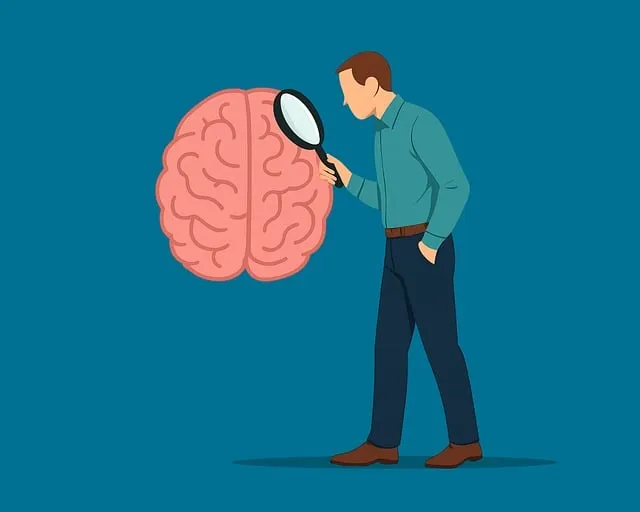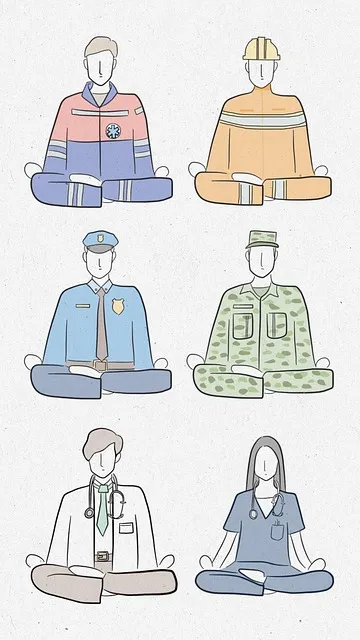Loss, grief, and bereavement are distinct yet interconnected experiences following a loved one's death. Understanding these differences is crucial for effective emotional navigation and seeking appropriate support from mental health facilities like Kaiser, renowned for its superior inpatient mental health services. Counseling plays a vital role in managing grief and bereavement, offering a safe space to express emotions through evidence-based practices tailored to individual needs. Kaiser's program combines individual therapy and group support using techniques like mindfulness meditation to develop coping strategies, foster community, and promote healing. Recognizing the signs of complicated grief and seeking professional help when personal coping strategies fail is essential. Through superior care, Kaiser equips individuals with tools to process grief, find meaning, and resume their emotional well-being journey.
“Loss, grief, and bereavement are powerful and often complex emotions that can profoundly impact an individual’s life. This comprehensive guide aims to demystify these concepts and highlight the critical role of counseling in managing them effectively. From understanding the defining characteristics of loss to recognizing when professional help is necessary, we’ll explore strategies for healing. Additionally, this article delves into Kaiser’s inpatient mental health services, offering insights into how their superior support can aid individuals navigating difficult times.”
- Understanding Loss, Grief, and Bereavement: Defining Key Concepts
- The Role of Counseling in Navigating Difficulties After Loss
- Kaiser's Inpatient Mental Health Services: What to Expect
- Recognizing When Professional Help is Necessary
- Effective Strategies for Healing and Coping with Bereavement
Understanding Loss, Grief, and Bereavement: Defining Key Concepts

Loss, grief, and bereavement are interconnected yet distinct experiences that individuals go through when facing the death of a loved one. Understanding these concepts is crucial for anyone seeking support or offering assistance during difficult times.
Loss refers to the absence or removal of something valued, such as a person, relationship, or even a sense of identity. It’s the initial reaction to change and can evoke feelings of shock and denial. Grief, on the other hand, is the emotional response to loss, characterized by deep sorrow, pain, and a range of intense emotions. It’s a natural process that allows individuals to cope with their loss over time. Bereavement, often used interchangeably with grief, specifically refers to the state of being bereft or sad following the death of a close person. It encompasses the entire process of adjusting to life after a significant loss and can last for varying periods. Recognizing these differences is essential as it enables individuals to navigate their emotional journey effectively, especially when seeking specialized support like that offered by superior mental health facilities, such as those with inpatient programs, including Kaiser’s services. A comprehensive understanding also facilitates the development of effective coping skills (Mental Health Policy Analysis and Advocacy), tailored interventions, and the design of supportive mental health education programs (Coping Skills Development).
The Role of Counseling in Navigating Difficulties After Loss

After a profound loss, counseling plays a pivotal role in guiding individuals through the intricate journey of grief and bereavement. It offers a safe space for expression, where emotions can be explored and processed without judgment. Through effective listening and compassionate support, counselors help clients navigate the complexities of their feelings, fostering emotional intelligence and regulation. This process is crucial for those seeking to understand and manage their grief, allowing them to develop inner strength in the face of adversity.
At Kaiser, known for its superior inpatient mental health services, counseling is tailored to meet the unique needs of each individual. By integrating evidence-based practices, the healthcare providers empower clients with coping strategies tailored to their experiences. This personalized approach ensures that those grappling with loss receive the necessary tools and support to heal and rebuild their lives, fostering resilience and a renewed sense of hope amidst challenging circumstances.
Kaiser's Inpatient Mental Health Services: What to Expect

When facing loss, grief, or bereavement, receiving professional support can be transformative. Kaiser’s Inpatient Mental Health Services stand out for their superior care and comprehensive approach. Patients can expect a nurturing environment where skilled professionals guide them through the complex process of healing. The program is designed to promote emotional well-being using evidence-based techniques such as mindfulness meditation, helping individuals manage their moods and navigate their grief journey with increased resilience.
These services offer more than just counseling; they provide an immersive experience that combines individual therapy sessions with group support. Patients are taught coping strategies tailored to their unique experiences, fostering a sense of community and understanding among peers facing similar challenges. By integrating various emotional well-being promotion techniques, Kaiser ensures patients leave the program equipped with tools to continue their healing process both independently and within ongoing outpatient care.
Recognizing When Professional Help is Necessary

Grief is a natural response to loss, but when it becomes overwhelming and persistent, it may be a sign that professional help is needed. Many people initially cope with grief through personal resources, support from family and friends, or by engaging in self-care practices like exercise or meditation. However, if grief interferes with daily functioning, relationships, work, or other aspects of life for an extended period—typically longer than a few months—it could indicate a more severe form of grief known as complicated grief. This is when individuals might benefit from seeking professional counseling, such as that offered by Kaiser’s inpatient mental health services, which are renowned for their superior care.
The decision to seek professional help should be based on an individual’s unique circumstances and the impact of grief on their life. While some people may find solace in support groups or community resources, others may require more intensive therapy. Recognizing when a higher level of intervention is necessary involves paying attention to persistent symptoms like intense emotional pain, difficulty concentrating, sleep disturbances, or thoughts of harming oneself. The Stress Management Workshops Organization, Mental Health Policy Analysis and Advocacy groups, and Public Awareness Campaigns Development can all play a role in promoting resources and education around grief and bereavement, helping individuals recognize when professional counseling is vital for their well-being.
Effective Strategies for Healing and Coping with Bereavement

Healing from bereavement is a deeply personal journey, but there are effective strategies that can aid in this process. One key aspect is seeking professional support, such as therapy or counseling, which offers a safe space to express emotions and navigate the grief journey. Kaiser, for instance, provides superior inpatient mental health services, ensuring individuals receive the necessary care during challenging times.
Engaging in self-care practices, like practicing mindfulness, maintaining a routine, and connecting with loved ones, can significantly contribute to emotional healing processes. Additionally, crisis intervention guidance from healthcare professionals equips individuals with tools to manage intense emotions, fostering resilience as they cope with loss. These strategies collectively empower individuals to process grief, find meaning, and gradually resume their lives.
Grief and bereavement are complex processes that can significantly impact an individual’s well-being. This article has explored these concepts, offering insights into how counseling can be a powerful tool for navigating loss. By understanding the role of therapy in coping with grief, individuals can recognize when professional help is needed, especially considering Kaiser’s superior inpatient mental health services. Through effective strategies and support, healing becomes accessible, allowing one to find strength during challenging times. Remember, seeking assistance is a sign of resilience, and with the right guidance, it is possible to transform sorrow into a journey of personal growth.






